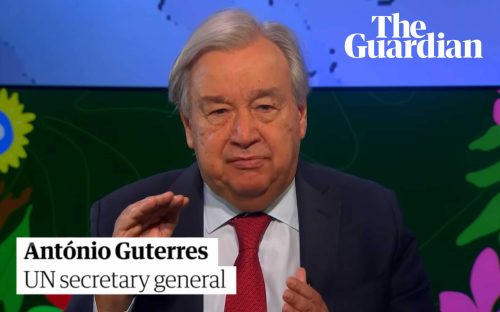PRESS RELEASE
- BP rebranded itself as Beyond Petroleum in 2000 yet nearly all investments remained tied to fossil fuels
- Activist investor Elliott’s recent stake in BP adds further pressure on the company
BP is facing mounting pressure following the news that US activist investor Elliott Management has acquired a stake in the company. Amidst this development, BP has pledged to “fundamentally reset” its strategy after reporting a sharp decline in annual profits, falling to $8.9billion in 2024 from $13.8 billion in 2023—its worst financial performance since recording a $5.7 billion loss in 2020, the year of the Covid pandemic.
“BP never really walked the talk on clean energy,” responds Mark van Baal, founder of Follow This. “The company’s half-hearted investments in clean energy have failed to generate new business models, while its traditional fossil fuel operations underperform.”
Investor support – reaching up to 20% of votes – for Follow This climate resolutions compelled BP to set emissions reduction targets. However, Van Baal highlights BP’s reluctance to embrace real change:
“BP wanted to remain an oil giant but not look like one. Mixed signals from the board have confused both shareholders and employees. BP’s predicament stems from the contradiction between its public messaging and operational reality.”
Elliott Management’s Involvement
Elliott Management, known for its short-term activist investment strategy, has a track record of pushing for overhauls, boardroom changes, or company breakups.
“Elliott’s agenda remains unclear, but it is most certainly not focused on the long-term future of BP,” says van Baal. “Short-term activists ignore risks such as peak oil and gas, stranded assets, carbon taxation, liability for climate-related damages, and disruptive innovation.”
Van Baal suggests that Elliott’s intervention could prompt BP to acknowledge the value of long-term activist investors, such as Follow This and the one-fifth of shareholders who vote in favor of climate-focused resolutions.
“Now that BP is under pressure from a short-term activist, they might finally recognize the significance of long-term investors pushing for real emissions reduction targets.”
Murray Auchincloss Faces the Legacy of Bernard Looney
BP’s lack of strategic clarity is a consequence of the contradictions under its former CEO, Bernard Looney. While Looney publicly committed to radical change—announcing a 40% reduction in oil production—he continued managing the business as usual. His tenure saw the halving of BP’s dividend in August 2020 and the company’s exit from Rosneft in February 2022, which accounted for nearly a third of BP’s oil production.
Looney’s successor, Murray Auchincloss, a former CFO without an engineering background, now faces the challenge of navigating this legacy.
A ‘Paris-Flexible,’ Not ‘Paris-Aligned’ Strategy
“Despite presenting itself as a leader in the energy transition, BP failed to set clear targets for total emissions reductions by 2030. Looney’s approach was characterized by a plethora of aims. Looney wanted to transform BP in an asset light company.”
Follow This coined his strategy “Paris-flexible” rather than Paris-aligned.
“Looney hedged his bets on two possibilities—either the world would meet the Paris goals, or it would fail to do so.”










